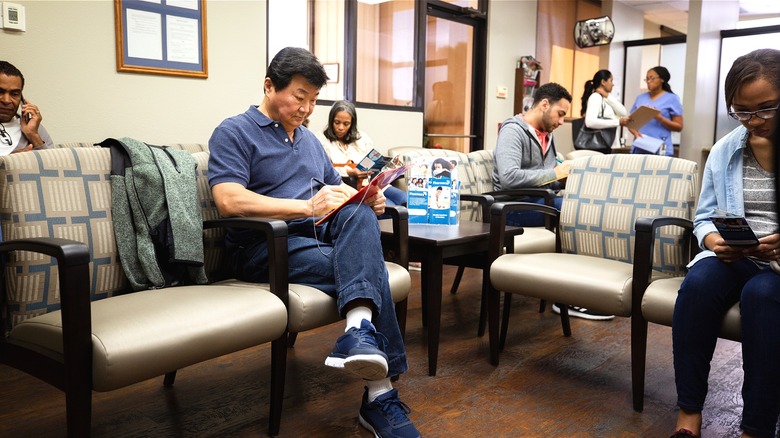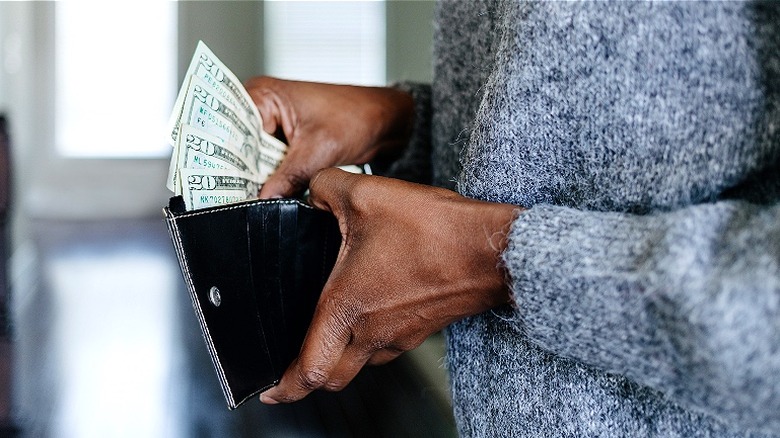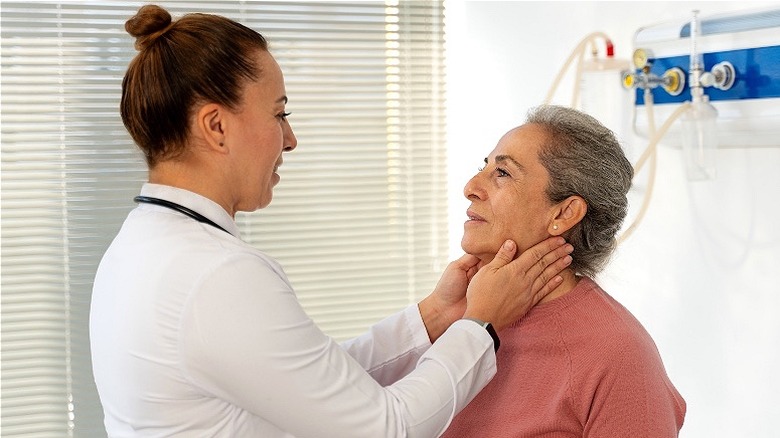Paying Your Doctor This Way Is An Unexpected Key To Saving Money
In some ways, health care has improved over the 21st century in America. For example, it is no longer legal to deny coverage due to preexisting conditions, the mortality rate has dropped, and the number of people without insurance has fallen dramatically. That said, the United States still has health-related problems unique among its peer nations. In addition to not having universal coverage, the reliance on employer-based health care saddles businesses with extra costs and responsibilities and locks many Americans into hated jobs just for the benefits. Further, costs remain high. To that end, even with insurance, record numbers of Americans have been putting off appointments and procedures, sometimes for very serious conditions, because of cost concerns.
Obviously, that's not the best way to save on health costs. And there are less dire ways to try and reduce your spending on health care than forgoing necessary doctor's visits. There are government programs and pharmacy discounts that can bring down your prescription costs, and tax credits can reduce your insurance bill. You also can shop for a cheaper plan. And then there's a simple trick for saving on every doctor's appointment you go to, one that cuts out the insurance intermediary and incentivizes doctors to offer affordable rates: paying with cash, or more broadly, paying your provider directly.
Cash-pay health care simplifies health costs
The basic idea behind cash-pay health care is this: When you go in for an appointment, a test, or procedure, ask the provider if there's a cash price for whatever it is you're having done. They won't refuse, and some states require by law that they reply with a "good faith estimate;" that is, a full list of expected charges for a service. NBC Bay Area found that the cash price for a range of procedures averaged 10% less than it would cost to pay with insurance. For patients with high deductibles who often have to shell out thousands before they see any benefits, this could mean significant savings.
For some people, moving to cash-pay health care may prove preferable to insurance at all. Paying directly for a service eliminates additional processing, administrative, and third-party costs that come with having insurance between you and your doctor. It can also simplify things on the doctor's end of the exchange; if you request the cash price and pay upfront, there's less of a chance that a bill will be forgotten and come up later. It also lets the doctor's office focus on providing their patients with a valuable and affordable service. There are no insurance prerequisites to satisfy and/or appeal, and there's an incentive to keep costs reasonable to retain patients. (On a related note, here's why you shouldn't pay medical bills with a credit card.)
Be aware of cash-pay risks in health care
Although the savings and simplification of cash-pay health care can seem readily appealing, you should stop and consider things before rushing to abandon your health insurance. Forgoing insurance also means forgoing consumer protections that can shield you from certain additional costs beyond the estimated price of a procedure. And even advocates for cash-pay health care don't recommend going without insurance entirely. The costs for emergencies and major procedures is too much for most to bear out-of-pocket.
Cash-pay is better suited to certain specialty health care needs, ones that aren't a matter of life and death. However, depending on what sort of coverage you have, it may not make sense to pay directly instead of using your insurance for the small stuff, too. If your deductible is low, it might save you more to meet it and start enjoying your benefits. If you opt for cash-pay with a provider who's out-of-network, you won't have your insurance to guard against balance-billing. And for those with a high deductible plan, paying directly probably won't count toward that deductible, meaning, if you end up in a serious situation where you need to use your insurance, you'll have to absorb more of the cost.


